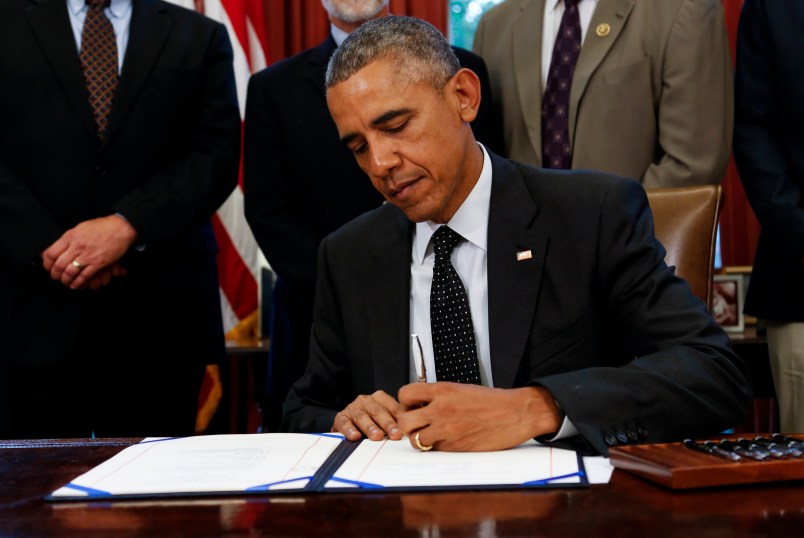President Barack Obama urged Congress to restore the Voting Rights Act and praised the work of activists who refused to accept not being able to vote in a letter to the New York Times Magazine published Wednesday morning.
President Obama wrote in response to the Aug. 2 cover story by Jim Rutenberg, “A Dream Undone: Inside the 50-year campaign to roll back the Voting Rights Act.”
The President wrote:
His article puts the recent push to restrict Americans’ voting rights in its proper context. These efforts are not a sign that we have moved past the shameful history that led to the Voting Rights Act. Too often, they are rooted in that history. They remind us that progress does not come easy, but that it must be vigorously defended and built upon for ourselves and future generations.
He noted that progress “must be vigorously defended” and urged Congress and state leaders to make it easier for all citizens to vote.
From Obama’s letter:
I am where I am today only because men and women like Rosanell Eaton refused to accept anything less than a full measure of equality. Their efforts made our country a better place. It is now up to us to continue those efforts. Congress must restore the Voting Rights Act. Our state leaders and legislatures must make it easier — not harder — for more Americans to have their voices heard. Above all, we must exercise our right as citizens to vote, for the truth is that too often we disenfranchise ourselves.







Every time someone told me how there was no mention of the Right to Vote in the Constitution, I wanted to slap them.
It’s mentioned several times.
So, maybe the Obama Administration had better get their lawyers to argue that point.
Voting… Ha! How pre Trump…
And this is precisely WHY the GOP is trying to over-turn or gut the VRA - they never want to see another black person in the WH. At least not unless [s]he is a Republican.
There will never be another candidate black or white, like Obama. He is a once in a lifetime and I am glad he came in my lifetime.
But then it gets messy and provides room for interpretation by the states. Like who is a voter, where to vote, registration, etc.